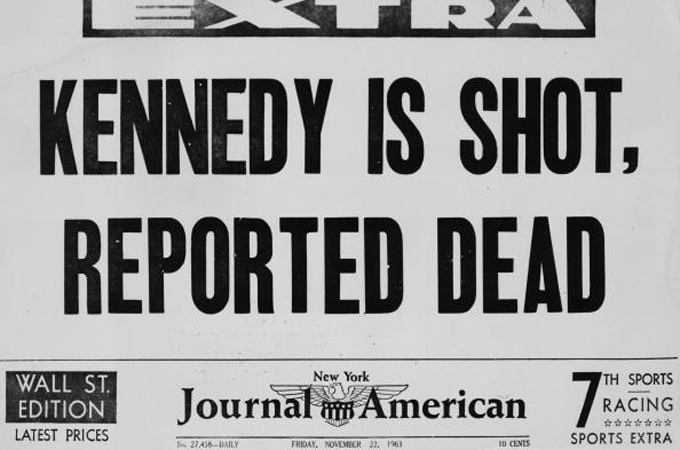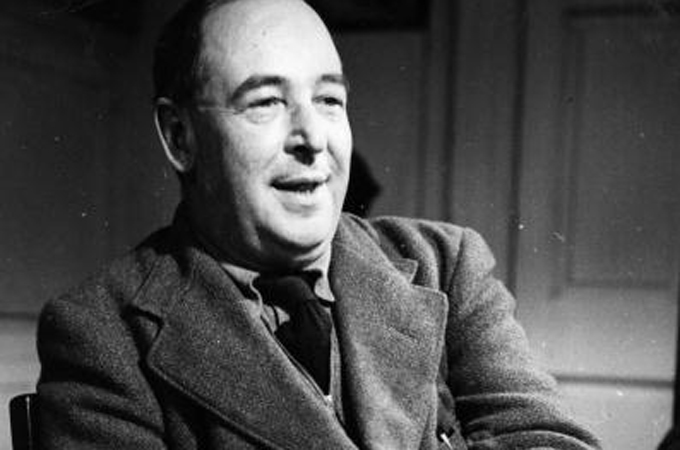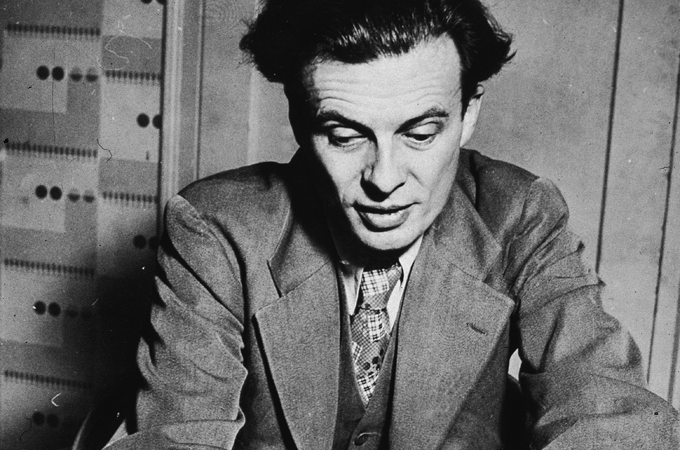Remembering Huxley and Lewis
Marking 50 years since the death of two giants of literature, who died the day JFK was assassinated.

Blanket news coverage of a US president’s assassination gripped the world on November 22, 1963.
We all know the story of how John F Kennedy was struck by an assassin’s bullet as his motorcade was travelling through Dallas’ Dealy Plaza – a shooting caught on camera, and subject to conspiracy ever since.
But 50 years later, as global media marks the anniversary of the death of the world leader, some are also shining a light on two other figures who also left the world on that fateful Friday.
It took The Times until Monday – three whole days – to report on the death of authors Aldous Huxley and CS Lewis.
 |
| JFK’s death eclipsed Huxley’s and Lewis’ in the media for several days [Getty Images] |
“I remember JFK’s death, I remember exactly where I was and what I was doing,” Judith Priestman, the curator of the Modern Literary Manuscript Collections at Oxford University’s Bodleian Library, told Al Jazeera.
“Nobody noticed that Lewis and Huxley died because they cut all the TV programmes with blanket coverage of Kennedy. I remember the TV programme we were watching and everything was just JFK.”
Priestman spoke very fondly of this “collosal, god-like” charismatic US president, who was the youngest man elected to office, and also the youngest to die, as pointed out in his White House biography.
A popular and favoured democrat from an Irish background and considered suave by many, JFK managed to charm a nation, while narrowly avoiding a nuclear catastrophe, as the Russians, the Cubans and the US brought the world to the edge of war.
But Priestman added that the legacies of Huxley and Lewis were soon in the spotlight.
An influential trio in a time of change
“The 60s was a threshold period, a time of vast change, and the three men each represented a key aspect of what was going on at the time,” Author John Garth, whose reflections on the death of the three men were published recently in The Daily Beast and in Oxford Today, told Al Jazeera.
 |
| Author CS Lewis, b. 19 November, 1898 [Getty Images] |
Clive Staples Lewis represented a search for enlightenment of life after death, said Garth. Lewis is best known for authoring children’s books including the massively popular Chronicles of Narnia fantasy series, as well his theology. He was an avid Christian apologist, popular among American evangelists. A plaque was unveiled in Poets’ Corner inside London’s Westminister Abbey on Friday to mark the 50th anniversary of his death.
Born in Belfast, Northern Ireland, Lewis went on to hold academic positions at both Oxford and Cambridge universities. He married Joy Davidson, an American poet, who died of cancer in 1960. Lewis lost his own battle with illness three years later at his home in Oxford.
Meanwhile, in Los Angeles, California, Englishman Aldous Huxley had handed a written request to his wife Laura to administer two hefty doses of the psychedelic drug, LSD, into his bloodstream while on his death bed.
Huxley wrote the dystopian novel Brave New World which expressed a vision of the future “ruled by the fulfillment of cheap satisfaction”, said Garth. His famed The Doors of Perception inspected the personal experience of being under the influence of powerful psychedelic drugs.
Huxley was influential both on an “ongoing hedonistic drug culture” and on a rising popular political awareness, said Garth, who acknowledged Huxley’s cult following.
The Centre for Aldous Huxley Studies, at the University of Munster’s English Department in Germany, remembered Huxley 50 years after his death, saying the author remained pertinent, and “worthy of additional consideration” even today.
An odd coincidence
The three men straddled the Atlantic – JFK studied at the London School of Economics; Huxley moved to California, and Lewis’ works were influential across the pond.
“There’s no evidence that Huxley read Lewis, or that Kennedy read either […] but Lewis knew enough of Huxley to mention him in a letter of 1952 as an author of a future dystopia alongside HG Wells and George Orwell,” wrote Garth in his recent article.
Remaining on the fictional theme, a 1982 novel titled Between Heaven and Hell by Peter Kreeft was inspired by the coincidence of the three men dying on the same day.
As pointed out by Garth, the Socratic dialogue which occured “somewhere beyond death” in Kreeft’s novel engages the three gents in a conversation held in purgatory.
Kreeft suggests that the trio represented three influential philosophies of life in human history: Lewis representing ancient Western theism, Kennedy representing Western humanism and Huxley representing ancient Eastern pantheism.
Their readers may disagree with the notion.
What remains, 50 years after their deaths, are their legacies. Between Lewis’ significance in the worlds of literature and Christian thinking, Huxley’s influence on an alternative drug-intellectual culture, and Kennedy’s status as an icon of progressive politics, these three men have left us an endowment that the generations of the future will continue to explore.
Follow Rahul Radhakrishnan on Twitter: @RahulRadhakris
